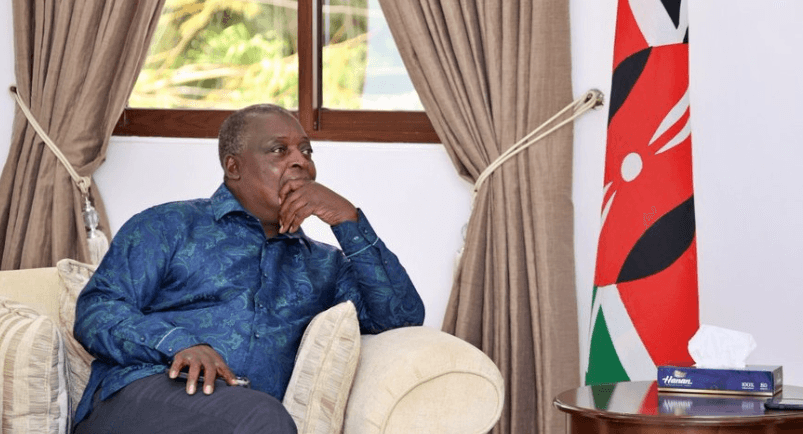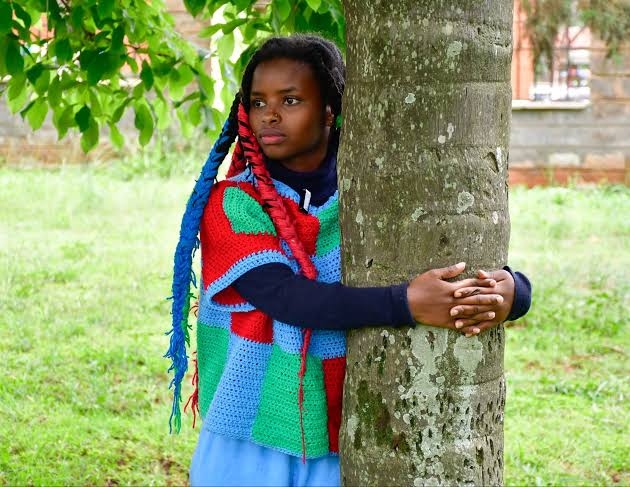The 2024 Paris Olympics culminated on Sunday with Kenya ranking 17th in the world and top in Africa after winning 11 medals (four gold, two silver and five bronze medals).
The gold medallists were Beatrice Chebet (5000m and 10000m, Emmanuel Wanyonyi (800m) and Faith Kipyegon (1500m).
Kipyegon and Ronald Kwemoi struck 5000m silver medals while Mary Moraa ( 800m), Faith Cherotich (3000 m steeplechase), Abraham Kibiwot (3000m steeplechase) while Benson Kipruto and Hellen Obiri finished third in the marathon.
However, the quest to surpass their best tally — six gold, four silver and six bronze medals— from Beijing 2008 fell through.
But the team manager, Peter Angwenyi, is unfazed. "It was an amazing championship and I must commend our athletes for giving their all," said Angwenyi.
"The competition here was very high but our athletes proved equally up to the challenge. It would be erroneous to judge the team by the number of medals won."
Instead, Angwenyi acknowledged improvement in most of the events while soaking in lessons learnt.
"This was a relatively young team. What we need is to execute the lessons learnt," he said.
Shujaa and Malkia Strikers were made of rookies with a first in fencing.
In athletics, most athletes stormed their respective finals and where they missed the podium, they struck top 10 placings.
Angwenyi reckoned efforts made by the likes of Julius Yego, who was picked for the Games despite an indifferent season devoid of 100 per cent support.
To counter this, Angwenyi said: "We must pump resources into this team. They proved they have what it takes to compete at the top level. Proper preparations over the next Olympic cycle should put us in good stead heading to Los Angeles in 2028."
The team was bashed, especially on social media for "dismal showing" but Angwenyi disagrees.
"The standards have gone higher and it is for us to work on a catch-up. More resources and facilities for training, more time in training and effecting tactical and mental fortitude," he said.
Angwenyi said the athletes could be the face of sport but appreciated the long hours coaches, trainers and team management put into safeguarding their (athletes') mental astuteness.
"I want to thank the coaches for a job well done. They trained the team pre-Games and offered their technical abilities during the Games, winning two appeals and having another dismissed," he said.
After Amos Serem was shoved off a barrier in the 3000m steeplechase semifinals, losing considerable time and a slot in the automatic qualifying slots, Team Kenya appealed and he was given a green-lighted for the final.
Three-time Olympic 1500m champion Faith Kipyegon was disqualified for obstruction in the 5000m after a tussle with Ethiopia's Tsegay Guday.
She had her silver struck off and Team Kenya once again appealed and had the silver reinstated.
In the 800m final, Canada appealed against Kenyan winner Emmanuel Wanyonyi, claiming he obstructed silver medallist Marco Arop. Kenya, once again, won the appeal.
Regrettably, all the medals were from athletics with Angwenyi saying diversification should take centre stage when the strategy for LA 2028 is drafted.
"If we had some medals from other disciplines, we would have ranked better on the standings," he said. With 11 medals, Kenya finished 17th in the world and top in Africa.
China topped the standings with 90 medals (39, 27, 24) followed by the USA - with 123 (32, 48, 43) and Australia third - with 50 (18, 18, 14).
In athletics, Kenya was second behind the USA's 34 medals (14, 11, 9) while Canada was third with five (3, 1, 1).
Yego, one of the team's veteran athletes, called for a rethink of major issues affecting sports in the country.
He finished fifth in the final with a personal best of 87.72m, which was good enough for a medal in the past two Olympics.
"Just like the rest of the Team Kenya, I gave my best in what I can describe as the best Olympics I have ever competed in," said Yego, the Rio 2016 silver medallist.
"It was Kenya's best performance in Europe. Despite the limited number of medals, most of our athletes left Paris with either a season's best, a personal best or an Olympic record."
"We must take the positives from Paris. Every athlete gave their all. This idea of "dismal display" should end. We must learn to appreciate effort."
While congratulating those who fought their way to the podium, he added: "We don't give our athletes the credit they deserve."
However, things must change. "Closing stadia in the run-up to the Games was a bad idea," he said.
And to have athletes raise this concern without maximum support from those concerned was demoralising.
"This (lack of stadia) is where we lost pace in our preparations. Training and competing at Ulinzi Stadium (short of World Athletics specifications) didn't help."
A rethink on Athletics Kenya weekend meetings is needed. "It would be great to have different disciplines on different weekends.
It is tricky to have field and other technical events outside Nairobi due to a lack of facilities. I have never competed outside Nairobi. I can't risk throwing on grass," he said.
Rankings must be considered too with just the National Championships and Kip Keino Classic invite-only events, considered for points by World Athletics.
" Maybe we should apply to World Athletics to have more ranking events in Kenya."
















